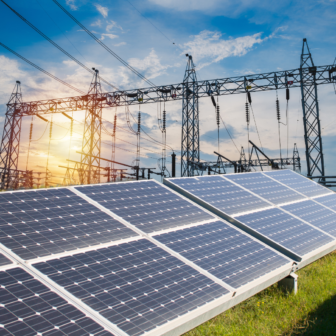Commentary | Mike Tidwell
It’s high noon in Annapolis. Lawmakers must pick between two starkly different economic visions.
The second vision, articulated last month by Gov. Martin O’Malley, anticipates something totally different. By fighting global warming with clean, efficient energy, the state will prosper thanks to a $2 billion economic boom in investment and savings, says O’Malley. And this year O’Malley is sponsoring legislation – backed by environmentalists, labor unions, and manufacturers – to get the job done.
Anyone who doubts that global warming is a problem need only remember that Allstate, one of America’s biggest insurers, began openly retreating from Maryland’s fragile coastline in 2006. After reviewing the latest climate science, the company announced that major Atlantic hurricanes are indeed becoming more frequent and that the ocean itself is rising. These two factors could spawn Katrina-like conditions here. To avoid exposure to a mega disaster, the company stopped issuing new homeowners policies in 2006 in all or part of the state’s 11 eastern-most counties.
Hello? Maryland! Wake-up time. How much more urgent can the warnings get? Last time I checked, Allstate wasn’t a Republican corporation. It’s not a Democratic corporation. It’s a private company with its own private capital at risk. And Allstate has made a bottom-line decision to voluntarily walk away from tens of millions of dollars worth of business, not just in Maryland but in several other mid-Atlantic states. Better to do this than to be on the hook for the next climate-spawned horror the company obviously believes is possible.
It’s our use of dirty fuel – oil, coal and natural gas – that’s driving the warming worldwide, of course. Given our increasingly Louisiana-like vulnerability in Maryland, we should take the lead among states in switching to wind power, solar energy, and more efficient buildings and products. Major legislation moving us in that direction made progress in Annapolis last year but died after unions and manufacturers said they weren’t sufficiently consulted.
So O’Malley went to work. Last August, his official Commission on Climate Change, involving scores of qualified experts, proposed 42 different policy solutions that would substantially cut greenhouse pollution while simultaneously boosting the economy. How? By incentivizing or mandating everything from better land use to more recycling to tougher standards for “green” homes and businesses. The net gain to the state, counting energy savings and economic investment, would be at least $2 billion, the commission reported. And this while protecting jobs in sensitive industries like steelmaking and brick production.
To help close the deal, O’Malley then dispatched top aides in late November to bring labor, business and environmental leaders to the conference table. After dozens of hours of talks spread over several weeks, a detailed and fully negotiated bill was born in December: the Greenhouse Gas Emissions Reduction Act of 2009. This bill is remarkable for two reasons. It would, by law, require a serious 25 percent reduction in climate pollution statewide by 2020. And, two, it has the support of the Maryland Industrial and Technology Alliance, a traditionally fierce foe of environmental legislation.
“We support the reduction of greenhouse gas emissions,” said Alliance lobbyist Michael Powell. “And this bill creates a pathway that we think makes sense for labor and manufacturing.”
Now the General Assembly has that rare opportunity: pass major environmental legislation backed simultaneously by leading business and conservation leaders. O’Malley, to his credit, has already done most of the heavy lifting. Now he deserves an un-amended bill on his desk fast.
But is a 25 percent reduction in Maryland’s greenhouse gas pollution enough? Of course not. President Barack Obama and the U.S. Congress must also enact a national target that would reduce total U.S. emissions at least 40 percent below current levels. Thankfully, Maryland’s U.S. Rep. Christopher Van Hollen (D-Dist. 8) has signaled a commitment to help lead this fight. Van Hollen’s goal: place a reasonable fee on fossil fuel sales nationwide and give almost all the proceeds back to American voters. This will create badly needed net income for working families while creating a market “signal” that spurs a rapid switch to renewable energy.
A national “cap and dividend” bill of this sort, passed by Congress this year, would finally bring America in line with the rest of the world on climate change. We will then, forever, be able to retire the worst-case “Allstate” vision of Maryland as a mega disaster waiting to happen. We can turn from risk to certainty, sure that our policies will mean green jobs, prosperity, and – most important – safety.
Mike Tidwell of Takoma Park is director of the Chesapeake Climate Action Network.




